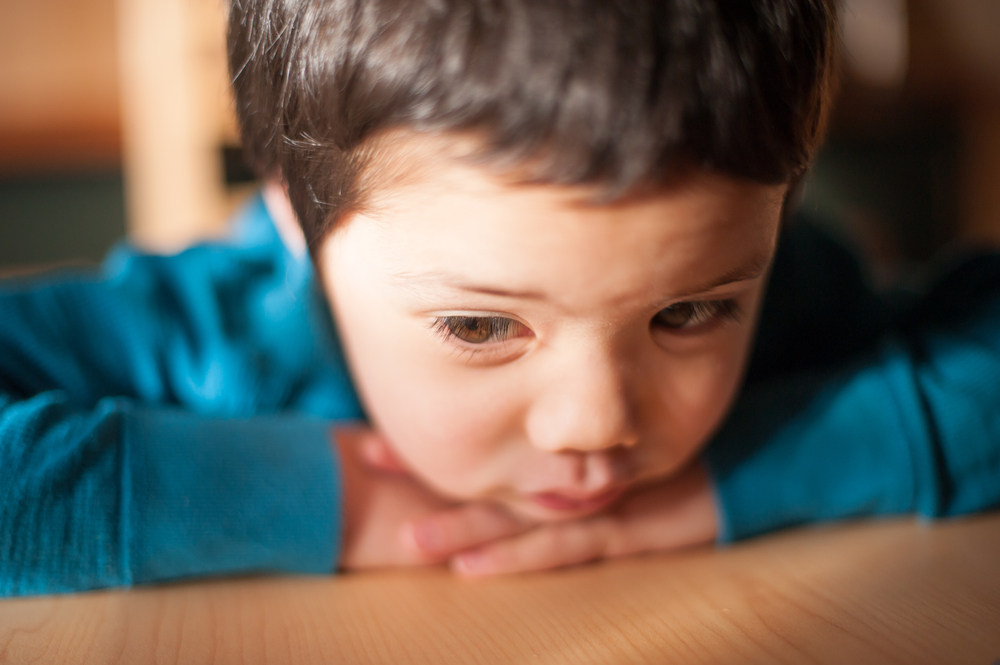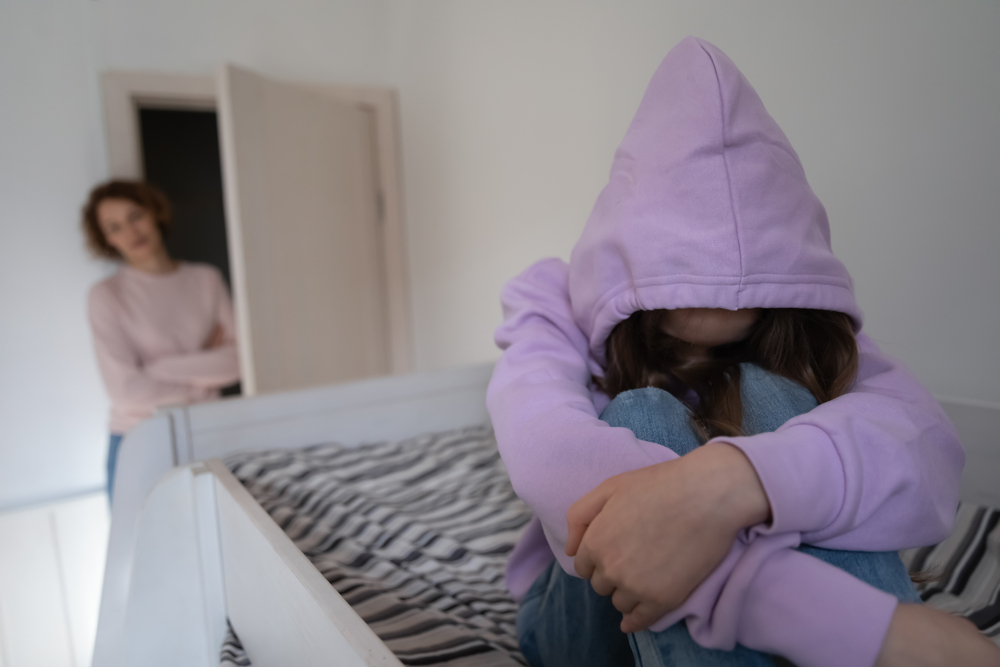On some level, many parents expect that their children will become less happy as they get older. Teenage angst is part of the story we tell ourselves about kids coming of age. But sometimes, that sadness and lowered mood isn’t just a part of growing up. Kids get depression too, and as a parent you need to be on the lookout for its symptoms far younger than you may expect.
Young Kids Get Depression, Too
A bad day or sad mood isn’t automatically a mental health crisis. Many healthy children can have periods of sadness or seem down or upset. Sometimes these periods of “blue” moods are caused by changes at home or school, a physical illness or injury, or conflict with a family member or friend. However, when those down feelings and behaviors continue for more than 2 weeks, it may be a sign of a bigger problem: depression.
Depression is a growing problem for adults and teens, but younger children can suffer from this mental illness as well. While it is not as common as anxiety or attention disorders like ADHD, 1.9 million children ages 3-17 (that’s 3.2% of all children) have been diagnosed with depression. Often, children with depression suffer from multiple mental health conditions. Comorbidity (being diagnosed with 2 or more conditions) often occurs with depression and:
- Anxiety (73.8% of children with depression)
- Behavior problems (47.2% of children with depression)
Depression is significantly more likely among young boys than girls before age 10. However, by age 16, girls are more likely to face depression. Children as young as age 3 have been diagnosed with childhood depression, and some symptoms can be detected even earlier in cases with risk factors.
The Symptoms of Childhood Depression
Not every child experiences depression the same way. Just like adults, kids can display a variety of symptoms that signal they may be suffering from childhood depression:
- Continuous sadness or hopelessness
- Anger or irritability
- Sensitivity to rejection
- Feeling worthless or guilty
- Withdrawal from social activities and friend groups
- Loss of interest in hobbies, extracurricular activities, or favorite school subjects
- Fatigue and low energy
- Changes in appetite – over-eating or lack of appetite
- Changes in sleep – insomnia or excessive sleep
- Concentration problems
- Impaired thinking
- Physical illness (headaches, stomachaches) that don’t respond to medical treatment
- Thoughts of death or suicide
It is rare for younger children to attempt suicide, but when they do it is usually impulsive – when they are angry or upset – rather than planned as in some adults with depression.
What Causes Young Kids to Suffer Depression
Depression isn’t like a broken leg. There often isn’t one incident to point to as the cause. Instead, childhood depression is often caused by a combination of factors:
- Family history of depression or mood disorders
- Genetic vulnerability
- Hormonal or biochemical disturbance
- Life events (such as loss of a loved one)
- Chaos or conflict at home
- Substance abuse (their own or their parents)
You should not take childhood depression as a sign you are a bad parent. Just because family history or household conflict can contribute to depression does not mean it is your fault your child is depressed. Don’t let your own insecurities prevent your children from getting the help they need.
What Parents Can Do if Their Children are Depressed
If you, as a parent, think your child is suffering from depression, the first thing to do is talk to their pediatrician. Be prepared – your pediatrician may want to speak to your child alone, without you in the room.
Depression is not a passing mood, and it will not go away without treatment. However, some common anti-depressants do not work the same for children as adults. They may even increase the severity of symptoms or chance of suicidal thoughts.
Medication isn’t your only option, though. Many cases of childhood depression are successfully treated using psychotherapy with a psychotherapist trained to work with younger children. A child psychotherapist can help your son or daughter identify and express their feelings, understand what causes them to feel bad, and develop coping mechanisms to break the cycle of depressive thoughts. A mental health evaluation – including interviews with both you and your child – may be the first step toward recovery and a happier childhood.
David Stanislaw is a psychotherapist with over 30 years of experience. He helps children, teens and adults with depression, anxiety, and other mental health issues. Contact David Stanislaw to get help today.


 6 Ways to Accommodate Your Spouse’s Anxiety
6 Ways to Accommodate Your Spouse’s Anxiety How Long Does Therapy Take?
How Long Does Therapy Take? Helping Kids Cope with Trauma and PTSD
Helping Kids Cope with Trauma and PTSD